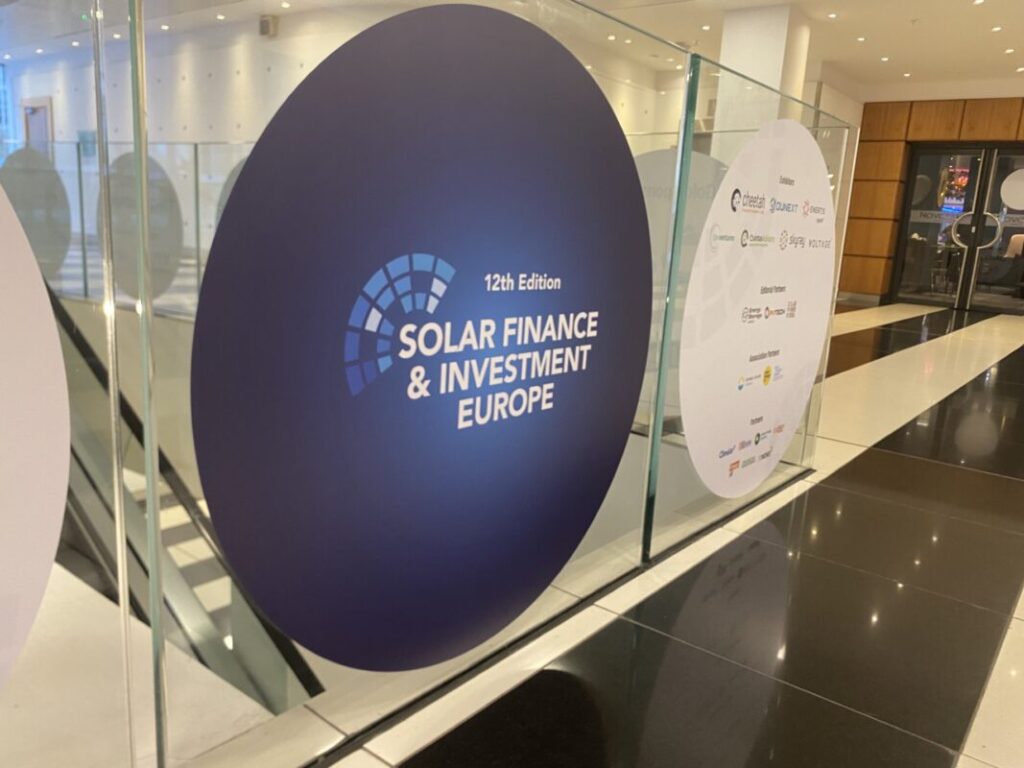
Europe will see “moderate” electricity demand increase in the coming years, despite the global growth of data centres and AI driven by so-called “hyperscalers” in the big tech sector.
Speaking at the Solar Finance and Investment Europe conference in London today, Jan-Phillip Kock, investment strategy manager at Encavis, said: “If you look at the facts, all the major European markets are seeing stagnating or declining electricity demand.”
Unlock unlimited access for 12 whole months of distinctive global analysis
Photovoltaics International is now included.
- Regular insight and analysis of the industry’s biggest developments
- In-depth interviews with the industry’s leading figures
- Unlimited digital access to the PV Tech Power journal catalogue
- Unlimited digital access to the Photovoltaics International journal catalogue
- Access to more than 1,000 technical papers
- Discounts on Solar Media’s portfolio of events, in-person and virtual
“The optimist looks to Ireland,” he continued, “where data centre demand has expanded massively. The total demand [in Ireland] in 2023 was 31TWh. However, we lost more in German industrial demand over the same period than there is total demand in Ireland.”
This is largely due to the fact that – with the exception of Ireland – most data centres are being built in the US and Asia where power prices are cheaper and supportive investment is greater.
“Currently only 4% of the overall AI computing capacities are concentrated in Europe,” Kock said.
He compared the EU’s recent announcement of €54 million towards AI development and research with the US president Donald Trump’s commitment of US$500 billion towards AI infrastructure.
“This is an order of magnitude which, for me, it’s hard to imagine that Europe can replicate,” Kock said.
Even prior to the prospect of half a trillion dollars’ worth of AI data centre backing, most deals between the solar sector and big tech for data centre supply were coming out of the US. Silicon valley giants like Meta and Google have signed swaths of PPAs for solar capacity across the country and, along with Amazon, have purchased more solar power than any other sector of the US economy.
Speaking on the panel, Francisco González Palomo, global head of project finance at Zelestra said that there is a “paradox” that as the computational capacity at data centres gets more efficient, electricity demand increases. “This is going to drive demand up” in Europe, rather than down, if data centres could be “really implemented as one of the vectors of demand in Europe”.
Where will data centres be located?
AI data centres tend to just follow energy cost, according to Kock, as they don’t need to be located near population centres. However, for ‘traditional’ data centres “it’s becoming increasingly popular to place them close to the actual demand”, he said.
In countries like Germany and Italy, with clearly defined population centres, data centres are likely to spring up around them. “Hyperscalers”, in particular – meaning the largest data centre companies – tend to follow the markets where the grid is already relatively green because it “makes it easier to cut emissions”, Kock said.
Both Kock and Palomo also said that data centres will increasingly be grid-connected, rather than relying on behind-the-meter, onsite solar and energy storage systems. This is likely to increase the attraction to already “green” grid systems.
“Data centres are becoming more and more power hungry. While they don’t expand so much in size, the relative share that a rooftop solar plant and battery can contribute to their demand is relatively limited,” Kock said.
“I personally think that grid-connected solutions will become more and more important.”
Big players are ‘truly knowledgable’
These “hyperscalers” – or “gamma offtakers”, as they were also called – are “truly knowledgeable about what they want and how to get it”, Kock said.
IPPs like Encavis are subsequently looking more to smaller and “less knowledgeable” clients in the data centre space to add more value to their partnership.
By contrast, Palomo said that Zelestra has seen “big value in partnering with gamma offtakers.”
“From the purely solar PPAs we started with, we’re now seeing more demand for more complex products including storage or even hybridisation.”






